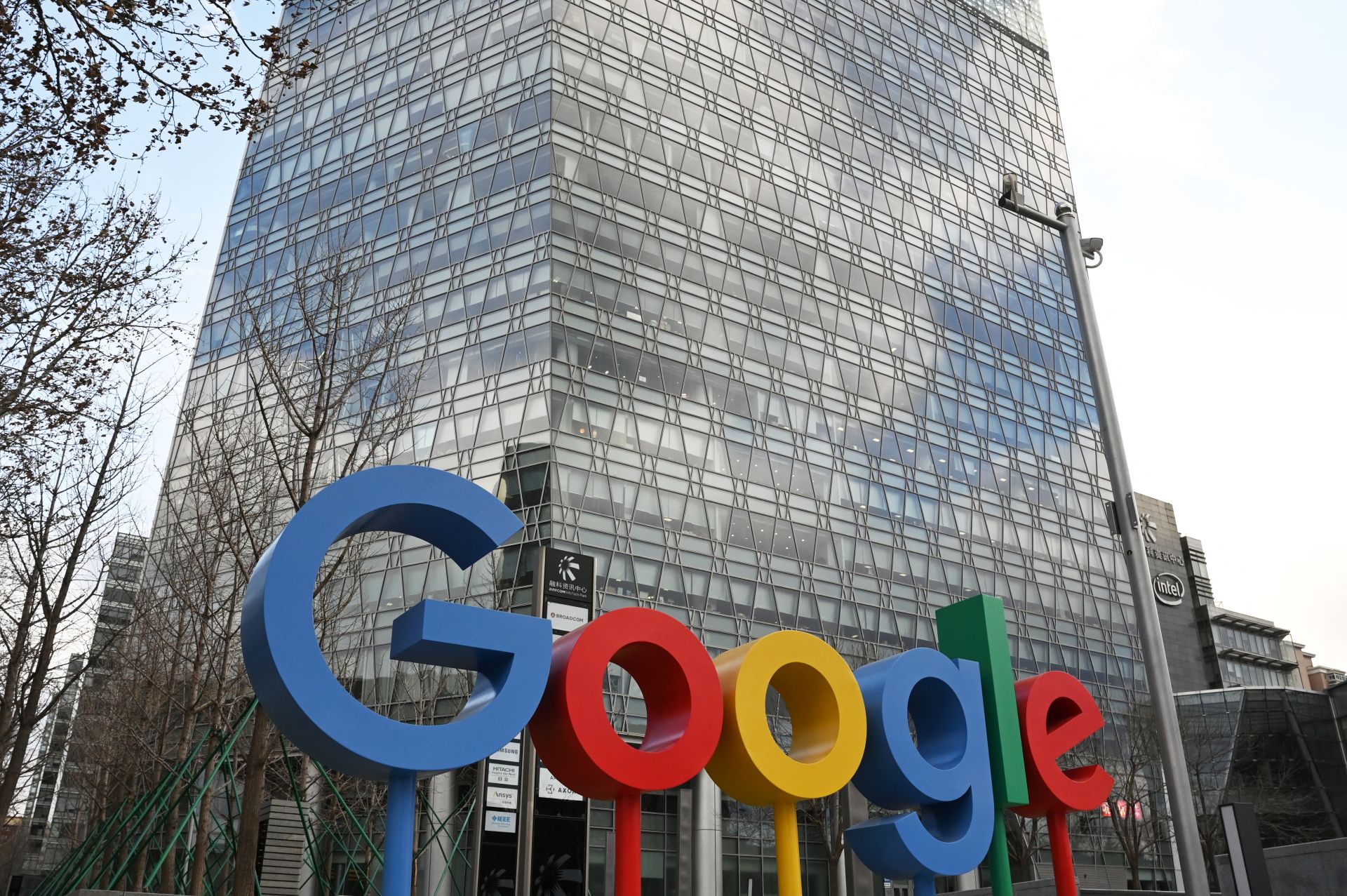- Home
- Middle East
- Google Agrees to Fund Three US Nuclear Plants

The Google logo is seen outside a building housing Google offices in Beijing on February 4, 2025. ©Greg Baker / AFP
Tech giant Google and nuclear developer Elementl Power have signed an agreement to develop three advanced nuclear power plants in the United States, according to a statement released Wednesday.
The partnership comes as technology companies seek new power sources to meet the growing energy demands of the generative AI revolution.
Under the agreement, Google will provide early-stage development capital for three projects, each designed to generate at least 600 megawatts of power capacity, each roughly the equivalent to a standard large power plant.
According to the International Energy Agency (IEA), electricity consumption by data centers is projected to more than double by 2030, creating significant challenges for securing adequate energy as AI usage accelerates.
Google's Global Head of Data Center Energy, Amanda Peterson Corio, said the plan helps fulfill the company's commitment to strengthening power grids.
"Advanced nuclear technology provides reliable, baseload, 24/7 energy" that supports "AI and American innovation," she added.
The collaboration will involve working with utility and regulated power partners to identify suitable locations, according to a joint statement from the companies.
Major tech companies increasingly recognize their growing energy needs.
Microsoft plans to use energy from new reactors at Three Mile Island -- the site of America's worst nuclear accident when it experienced a meltdown in 1979.
Amazon also signed an agreement last year to use nuclear power for its data centers.
Elementl Power will evaluate potential nuclear technology providers and construction partners while selecting specific sites for accelerated development.
Although expensive and politically complicated to build, nuclear power provides consistent, zero-carbon electricity once operational.
Tech companies are investing in Small Modular Reactors (SMRs), though these compact, potentially easier-to-deploy reactors remain experimental.
Amazon has announced investments in SMR projects, including a direct investment in startup X-energy.
Google is partnering with Kairos Power to develop SMRs that it says could be operational as early as 2030.
AFP
Read more



Comments